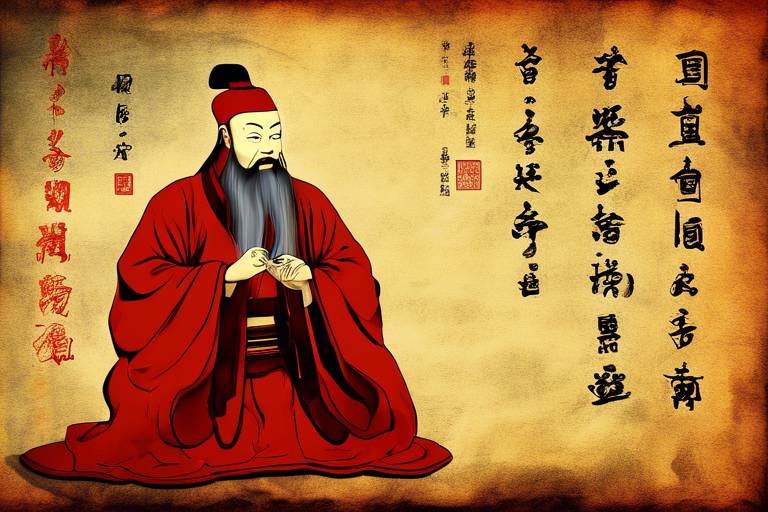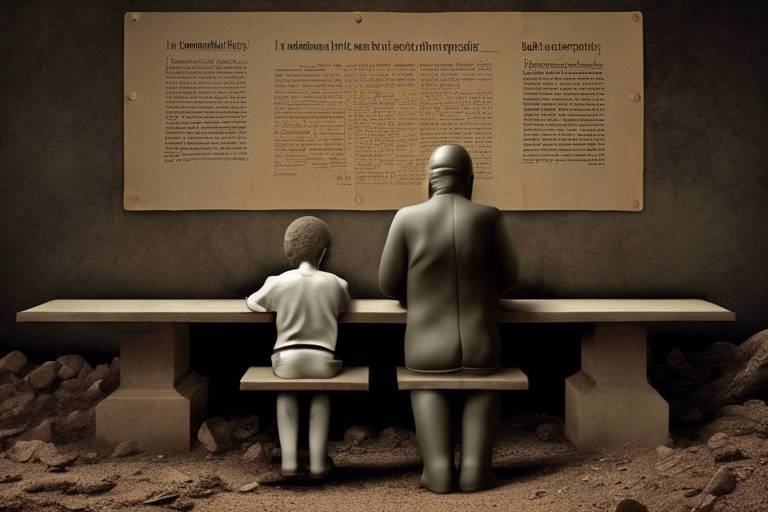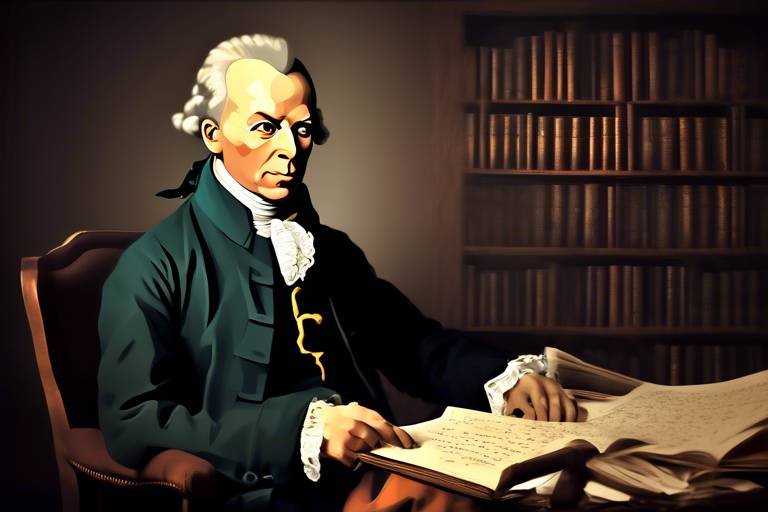Confucius and His Contribution to Eastern Philosophy
Confucius, a name that resonates through the corridors of time, is not just a figure from ancient history; he is a beacon of wisdom whose teachings have shaped the very fabric of Eastern philosophy. Born in 551 BCE in the state of Lu, present-day Shandong province, Confucius emerged during a tumultuous period in Chinese history marked by political fragmentation and social upheaval. His life was a quest for understanding the principles that could restore harmony and order to society. Through his teachings, he laid down a framework that emphasized moral integrity, social responsibility, and the importance of education.
His philosophy, known as Confucianism, transcended mere academic discourse; it became a guiding force for personal conduct and governance. At its core, Confucianism advocates for the cultivation of virtues and ethical relationships, which are essential for a harmonious society. The profound impact of Confucius's thoughts can be seen not only in China but also in other East Asian cultures, influencing their social structures, educational systems, and even political ideologies.
In a world that often seems chaotic, the teachings of Confucius offer a roadmap to navigate interpersonal relationships and societal duties. His emphasis on Ren (benevolence), Li (ritual propriety), and Xiao (filial piety) provides a comprehensive ethical framework that encourages individuals to act with compassion and respect towards others. These principles are not just relics of the past; they continue to resonate today, reminding us of the importance of empathy and moral conduct in our daily lives.
Moreover, Confucius's ideas about leadership and governance advocate for a system where rulers are expected to embody virtue and moral authority. This perspective challenges the notion that power alone defines a leader; instead, it posits that true leadership is rooted in ethical behavior and the well-being of the people. As we delve deeper into the life and teachings of Confucius, we uncover the timeless relevance of his philosophy, which continues to inspire generations in their quest for a just and harmonious society.
- What is Confucianism? Confucianism is a philosophical and ethical system based on the teachings of Confucius, emphasizing morality, social relationships, and justice.
- How did Confucius influence Eastern philosophy? Confucius's teachings shaped the moral and ethical frameworks of Eastern societies, impacting education, governance, and social conduct.
- What are the main principles of Confucianism? The main principles include Ren (benevolence), Li (ritual propriety), and Xiao (filial piety), which guide personal and societal ethics.
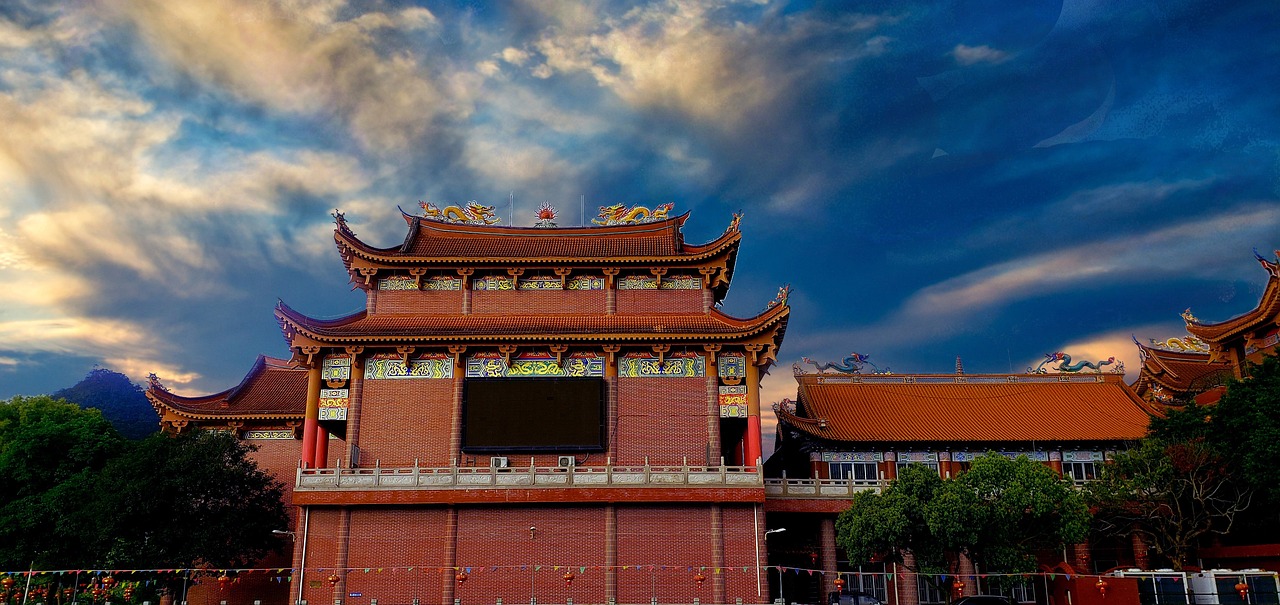
Life of Confucius
Confucius, one of the most influential philosophers in history, was born in 551 BCE in the small state of Lu, located in present-day Shandong province, China. His early years were marked by a modest upbringing; his father, a military officer, passed away when he was just three years old, leaving him and his mother to navigate life in a society that was often harsh and unforgiving. Growing up in this environment, Confucius developed a profound appreciation for education and self-cultivation, which would later become central themes in his teachings.
During his youth, Confucius was an avid learner, immersing himself in various subjects, including music, poetry, and history. He believed that knowledge was the key to moral development and societal harmony. This passion for learning led him to study under several prominent scholars of his time, shaping his philosophical outlook. The socio-political landscape of ancient China during Confucius's life was tumultuous, characterized by the decline of the Zhou dynasty and the rise of feudal states. This chaotic backdrop profoundly influenced his thoughts on ethics, governance, and social relationships.
As Confucius matured, he began to share his insights with others, attracting a group of devoted followers. His teachings emphasized the importance of virtue, morality, and ethical conduct, which he believed were essential for creating a harmonious society. He traveled extensively throughout China, seeking to advise rulers and promote his philosophy, even though he often faced resistance and skepticism. Despite these challenges, Confucius remained steadfast in his beliefs, advocating for a return to traditional values and moral integrity.
In his later years, Confucius settled in Lu, where he continued to teach and write. He compiled his thoughts and teachings into a collection known as the "Analects," which remains a cornerstone of Confucian philosophy. This compilation provides invaluable insights into his views on ethics, governance, and the ideal human character. Confucius passed away in 479 BCE, but his legacy lived on, profoundly influencing not only Eastern philosophy but also shaping social structures and ethical norms that resonate to this day.
In short, the life of Confucius is a testament to the power of ideas and the enduring impact of a single individual on the course of history. His teachings continue to inspire millions around the world, reminding us of the importance of virtue, education, and moral responsibility in our lives.
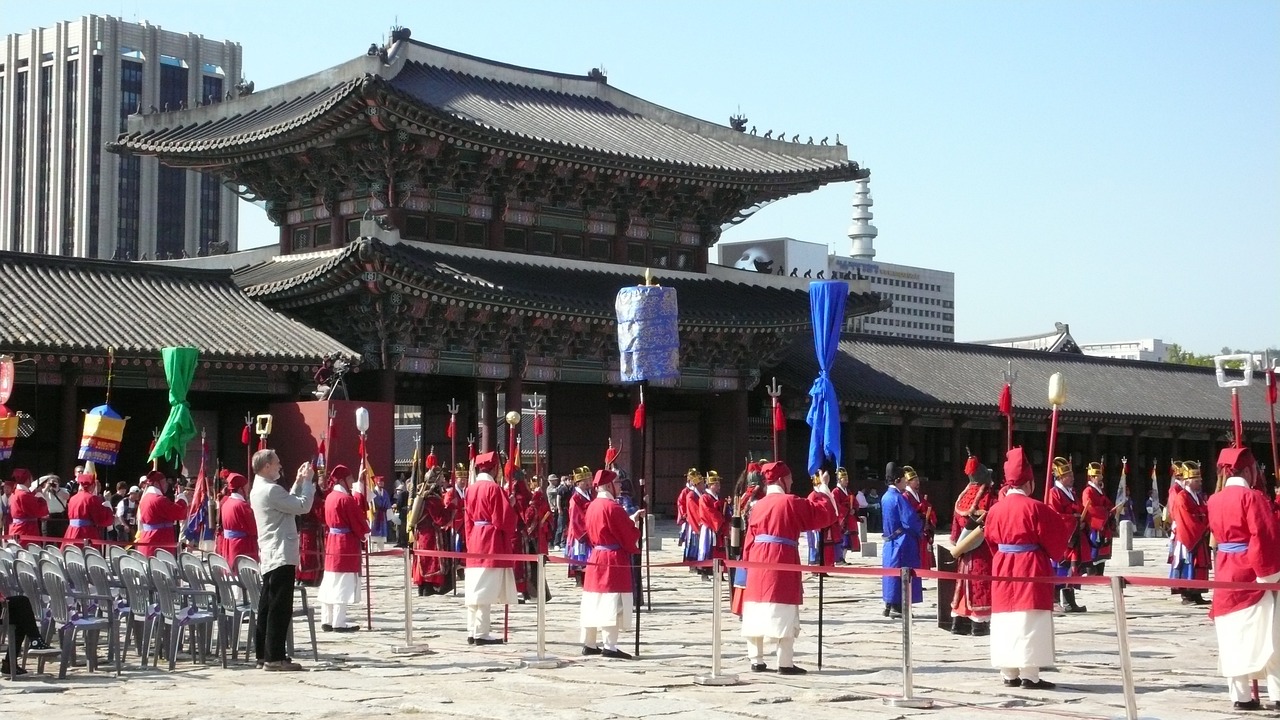
Core Teachings
Confucius, a name that resonates through the corridors of time, left behind a treasure trove of teachings that have shaped Eastern philosophy for centuries. His core principles, rooted in ethics and morality, serve as guiding lights for individuals and societies alike. At the heart of these teachings are three fundamental concepts: Ren, Li, and Xiao. Each of these principles offers a unique lens through which we can understand not only ourselves but also our relationships with others and the world around us.
Ren, often translated as benevolence or humaneness, is the cornerstone of Confucian thought. Imagine a world where compassion reigns supreme; that’s the essence of Ren. It encourages individuals to cultivate a deep sense of empathy and moral integrity, fostering a community where kindness prevails. Confucius believed that true morality stems from our ability to care for one another, creating a ripple effect of goodwill that extends beyond personal relationships to encompass society as a whole. This principle is not just about feeling good; it’s about actively engaging in acts of kindness that uplift others.
Next, we encounter Li, which translates to ritual propriety or social norms. Think of Li as the glue that holds society together. It encompasses the rituals, customs, and etiquette that govern our interactions. By adhering to Li, individuals contribute to social harmony and respect, creating a structured environment where everyone knows their place and responsibilities. This principle teaches us that following social norms is not merely about tradition; it is a means to foster respect and understanding among individuals. For instance, greeting elders with respect or participating in community rituals are practical applications of Li that reinforce social bonds.
Lastly, we have Xiao, or filial piety, which emphasizes the importance of respecting and honoring one’s parents and ancestors. In Confucianism, this principle extends beyond mere obedience; it encompasses gratitude, love, and care for family members. Xiao serves as a reminder that our roots shape our identity, and honoring our families is crucial for maintaining societal stability. It’s akin to nurturing a tree; the stronger the roots, the healthier the branches. This principle encourages individuals to embrace their familial responsibilities, creating a lineage of respect and care that transcends generations.
These three principles—Ren, Li, and Xiao—not only define the essence of Confucianism but also offer practical guidance for navigating the complexities of modern life. They invite us to reflect on our actions and their impact on others, urging us to cultivate a life of virtue and integrity. By embodying these teachings, we can contribute to a more harmonious society, where compassion, respect, and family values thrive.

Ren: The Principle of Benevolence
When we dive into the heart of Confucian philosophy, we stumble upon a gem known as Ren, often translated as "benevolence" or "humaneness." This concept isn’t just a lofty ideal; it’s the very foundation of how individuals should relate to one another in society. Imagine a world where kindness and compassion are not just encouraged but are the very fabric of daily interactions. That’s the essence of Ren. It embodies the idea that we are all interconnected and that our actions should reflect a deep respect for others' humanity. Confucius believed that by nurturing Ren within ourselves, we cultivate a society that thrives on mutual respect and understanding.
A key aspect of Ren is its emphasis on empathy. It’s about putting yourself in someone else's shoes and recognizing their feelings and needs. When we practice Ren, we are not merely following a set of rules; we are engaging in a profound moral endeavor that fosters harmony. For instance, when a friend is going through a tough time, practicing Ren might mean offering a listening ear or a helping hand, rather than just providing advice. This principle encourages us to look beyond our own interests and to act in ways that uplift those around us.
Moreover, the implications of Ren extend beyond personal relationships. In a community, when individuals embody this principle, it creates a ripple effect that promotes social cohesion. People become more inclined to support one another, leading to stronger bonds and a sense of belonging. In essence, Ren acts as a glue that holds society together. Think of it like a chain reaction: one act of kindness sparks another, creating a culture of benevolence that can transform communities.
Now, you might be wondering, "How can I incorporate Ren into my daily life?" It’s actually simpler than it sounds! Here are a few practical ways:
- Practice Active Listening: When someone is speaking to you, give them your full attention. This small act shows that you value their thoughts and feelings.
- Offer Help: Whether it’s holding the door open for someone or assisting a colleague with a task, every little act of kindness counts.
- Show Gratitude: Expressing appreciation for others fosters a positive environment and encourages more acts of kindness.
By intentionally practicing these behaviors, you can weave Ren into the very fabric of your life, creating a more compassionate existence not just for yourself but for everyone around you.
When we consider leadership, the principle of Ren takes on a whole new dimension. Confucius argued that true leaders must embody benevolence, as their actions set the tone for the entire community or organization. A leader who practices Ren is not just focused on achieving goals; they are concerned with the well-being of their followers. This creates an environment where people feel valued and motivated to contribute their best efforts. Imagine a workplace where leaders prioritize empathy and moral authority—employees would likely feel more engaged, loyal, and inspired. In this way, Ren becomes not just a personal virtue but a critical leadership quality that can drive success and foster a positive culture.
In conclusion, Ren is more than just a philosophical concept; it’s a guiding principle that can transform our interactions, relationships, and communities. By embracing benevolence, we not only enhance our own lives but also contribute to a more harmonious society. So the next time you’re faced with a choice, remember the power of Ren and how a simple act of kindness can create waves of positive change.

Application of Ren in Daily Life
The concept of Ren, often translated as benevolence or humaneness, is not just an abstract idea; it is a guiding principle that can profoundly shape our everyday interactions. Imagine walking through your day with a lens of compassion—how would that change your relationships? When you apply Ren in daily life, you're not merely following a philosophical doctrine; you're actively creating a more harmonious environment around you. This principle encourages us to foster empathy, understanding, and kindness in every interaction, whether big or small.
One of the most effective ways to embody Ren is through simple acts of kindness. For instance, consider how a smile or a kind word can uplift someone's day. When we take a moment to acknowledge the feelings of others, we are practicing Ren. This can manifest in various forms:
- Listening Actively: Instead of waiting for your turn to speak, truly engage with what the other person is saying. This shows that you value their thoughts and feelings.
- Offering Help: Whether it’s assisting a colleague with a project or helping a neighbor carry groceries, small acts of service can have a huge impact.
- Being Patient: We all have our off days. Practicing patience with others, especially when they are struggling, is a powerful expression of Ren.
Furthermore, Ren can significantly influence our family dynamics. In the context of family, practicing Ren means prioritizing the well-being of your loved ones. This involves understanding their needs, supporting them emotionally, and nurturing a loving environment. When parents model Ren, they instill these values in their children, creating a ripple effect that can extend to future generations.
In professional settings, the application of Ren can transform workplace culture. Leaders who embody benevolence inspire loyalty and motivation among their teams. When employees feel valued and respected, they are more likely to contribute positively to the organization. Here are a few ways Ren can manifest in the workplace:
- Promoting Teamwork: Encouraging collaboration rather than competition fosters a sense of community.
- Recognizing Achievements: Acknowledging the hard work of colleagues promotes a culture of appreciation and respect.
- Providing Constructive Feedback: Offering guidance in a supportive manner helps individuals grow and learn without feeling belittled.
In summary, the application of Ren in daily life is about creating a culture of compassion and respect, whether at home, in the workplace, or in the community. By consciously practicing Ren, we not only enhance our own lives but also contribute to a more empathetic and understanding society. So, next time you step out into the world, ask yourself: How can I show a little more kindness today? The answer could be the key to unlocking deeper connections and a more fulfilling life.

Ren in Leadership
When we dive into the essence of Ren in leadership, we uncover a treasure trove of wisdom that can transform not just individuals but entire communities. At its core, Ren emphasizes the importance of benevolence and moral integrity, which are critical qualities for any leader. Imagine a leader who embodies these traits—someone who genuinely cares for the well-being of their followers, fostering an environment where trust and collaboration flourish. This is the kind of leadership Confucius envisioned, one that inspires loyalty and respect rather than fear.
In practical terms, a leader who practices Ren is not merely a figurehead; they are a moral compass for their team. They lead by example, demonstrating how compassion and kindness can drive progress. For instance, consider a manager who takes the time to understand the personal challenges faced by their employees. By showing empathy, they not only strengthen the bond within the team but also enhance productivity. It’s like planting seeds of goodwill that eventually blossom into a thriving workplace culture.
Moreover, Ren in leadership goes beyond just interpersonal relationships. It also encompasses the broader responsibilities leaders have towards society. A leader driven by Ren understands that their decisions can have far-reaching consequences. They are mindful of the impact their policies and actions have on the community, striving to create a positive ripple effect. This is crucial in today’s world where leaders are often scrutinized for their choices. By prioritizing the welfare of others, they can navigate challenges with integrity and grace.
To illustrate how Ren can manifest in leadership styles, let's consider the following qualities:
| Quality | Description |
|---|---|
| Empathy | The ability to understand and share the feelings of others, fostering a supportive environment. |
| Integrity | Adhering to moral and ethical principles, ensuring transparency and honesty in all dealings. |
| Responsibility | Acknowledging the consequences of one’s actions and making decisions that benefit the greater good. |
In conclusion, the application of Ren in leadership is not just a philosophical ideal; it is a practical approach that can lead to sustainable success and harmony within any organization. By fostering a culture of benevolence, leaders can create a legacy that resonates far beyond their tenure. In a world that often prioritizes results over relationships, embracing Ren might just be the key to unlocking a brighter future for all.
- What is Ren in the context of Confucianism?
Ren is the principle of benevolence and compassion, emphasizing the importance of moral integrity and kindness in human interactions. - How can leaders practice Ren?
Leaders can practice Ren by showing empathy, maintaining integrity, and being responsible for their decisions, thereby fostering a positive environment. - Why is Ren important for leadership?
Ren is crucial for leadership as it builds trust, loyalty, and a sense of community, leading to more effective and harmonious organizations.
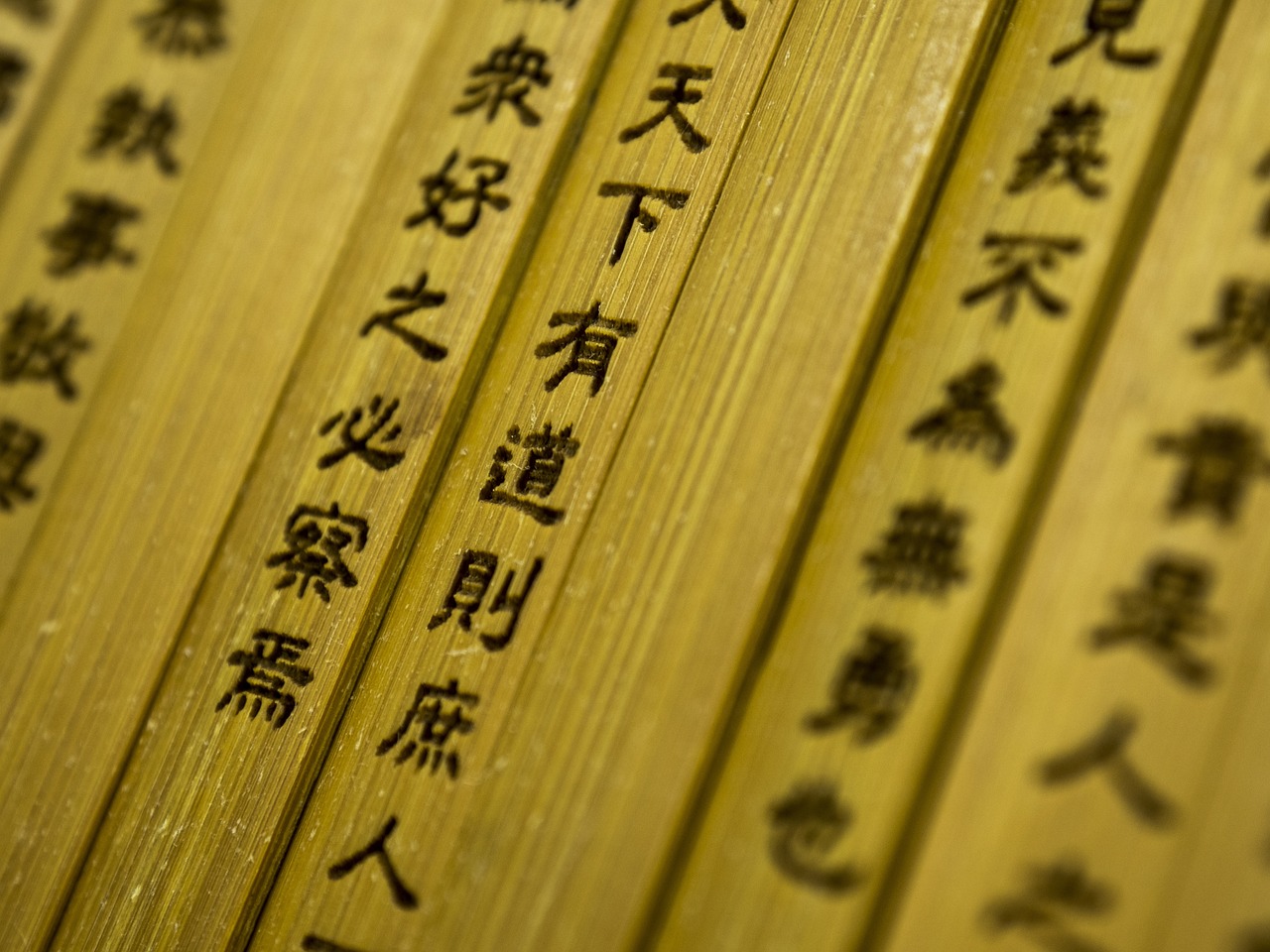
Li: Ritual and Social Harmony
When we dive into the heart of Confucian philosophy, we encounter the concept of Li, which translates to ritual propriety. But what does that really mean? At its core, Li encompasses not just rituals and ceremonies, but also the norms and behaviors that govern our daily interactions. Think of it as the unwritten rulebook of society, guiding individuals on how to act in various situations to foster harmony and respect. In ancient China, where Confucius lived, the social fabric was tightly woven with rituals that defined relationships, whether between family members, friends, or rulers and their subjects.
Li is often viewed as the glue that holds society together. Imagine a world without any social etiquette or norms—chaos would reign supreme! Through Li, Confucius emphasized the importance of maintaining social order and respect for one another. It’s not just about following traditions; it’s about understanding the deeper significance behind them. For instance, bowing to elders or performing specific rites during festivals isn’t merely a formality; it’s a way of acknowledging the wisdom and contributions of those who came before us, thus reinforcing our societal bonds.
Moreover, Li extends beyond mere actions; it reflects an underlying moral attitude. When individuals practice Li, they cultivate an environment where mutual respect and understanding flourish. This is especially crucial in a world that often feels fragmented and disconnected. By adhering to Li, people can navigate complex social situations with grace, ensuring that their actions promote unity rather than division.
To illustrate the significance of Li in everyday life, let's consider a few examples:
- Family Gatherings: During family reunions, rituals such as sharing a meal or honoring ancestors serve to strengthen familial ties and remind members of their shared history.
- Community Events: Participating in local festivals or ceremonies fosters a sense of belonging and collective identity, reinforcing the bonds between community members.
- Workplace Etiquette: In professional settings, adhering to protocols and showing respect through polite communication can enhance teamwork and collaboration.
In essence, Li is about creating a harmonious society, where everyone plays their part with dignity and respect. Confucius believed that when individuals embrace Li, they not only elevate their own moral standing but also contribute to the greater good of their community. This principle remains relevant today, as we seek ways to bridge divides and foster understanding in an increasingly complex world.
In conclusion, the concept of Li serves as a reminder that our actions, however small, ripple through the fabric of society. By practicing ritual propriety in our daily lives, we can promote social harmony and create a more respectful and cohesive community. As we reflect on our interactions, let’s strive to embody the values of Li, ensuring that we contribute positively to the world around us.
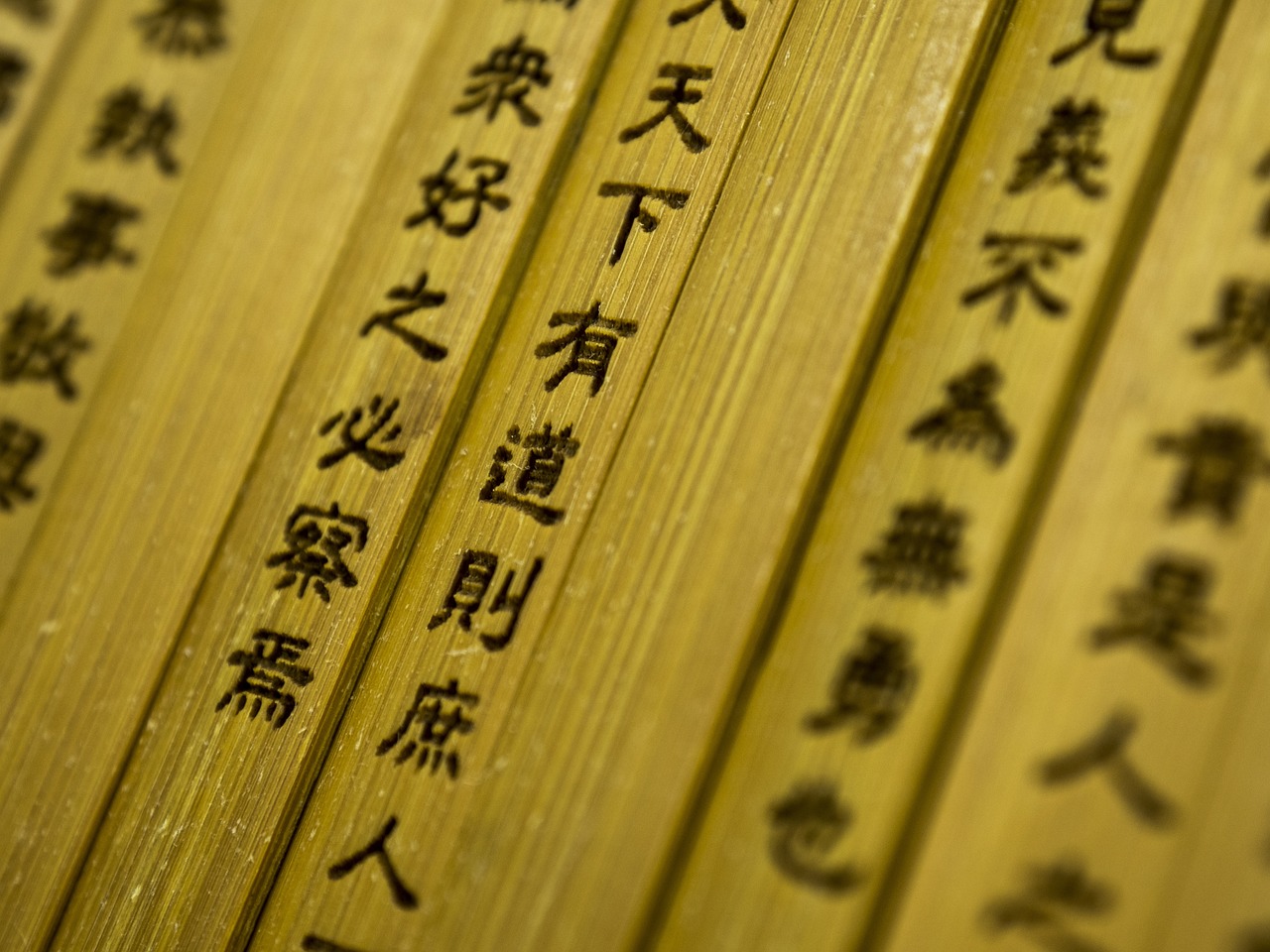
Confucian Ethics and Morality
Confucius, a beacon of wisdom in ancient China, profoundly shaped the landscape of ethics and morality. His teachings, rooted in the idea of cultivating virtue, emphasized the importance of moral integrity not just for individuals, but for society as a whole. In a world where ethical dilemmas are commonplace, Confucianism offers a guiding light, urging us to reflect on our actions and their impact on others. But what exactly does it mean to live a life of virtue according to Confucian thought?
At the heart of Confucian ethics lies the belief that morality is not just a set of rules to follow, but a way of being that fosters harmony and respect. Confucius taught that individuals should strive to become 'Junzi' or 'noble persons.' This concept embodies the ideal moral character, encouraging people to cultivate qualities such as righteousness, wisdom, and integrity. Imagine a society where everyone aspired to be a 'Junzi'—the ripple effects would be profound, creating a community grounded in mutual respect and ethical behavior.
Confucius also emphasized the significance of relationships in ethical development. He believed that our interactions with others are the bedrock of moral understanding. For instance, the Five Relationships—ruler to subject, father to son, husband to wife, elder brother to younger brother, and friend to friend—serve as a framework for understanding our duties and responsibilities. Each relationship carries its own set of ethical expectations, fostering a sense of duty and respect. In this way, Confucian ethics transcends individualism, highlighting the interconnectedness of our lives.
Moreover, education plays a pivotal role in Confucian ethics. Confucius famously stated, "Is it not a joy to have friends come from afar?" This reflects his belief in the transformative power of learning and moral development. Education, in Confucianism, is not merely about acquiring knowledge; it's about nurturing character and fostering a sense of responsibility toward others. By cultivating a love for learning, individuals can develop the virtues necessary to contribute positively to society.
To illustrate the essence of Confucian ethics, let’s consider a few core principles:
- Ren (Benevolence): The ultimate virtue, emphasizing compassion and kindness towards others.
- Li (Ritual Propriety): The importance of rituals and customs in promoting respect and social harmony.
- Xiao (Filial Piety): The duty of respect and care for one’s parents and ancestors, grounding moral behavior in familial love.
These principles are not just abstract ideas; they are practical guides for daily living. For instance, practicing Ren can manifest in simple acts of kindness, such as helping a neighbor or volunteering in the community. Li encourages us to observe social customs that promote respect and order, while Xiao reminds us of the importance of family bonds in fostering a moral society. Together, these principles create a tapestry of ethical living that is as relevant today as it was in Confucius's time.
In conclusion, Confucian ethics and morality provide a robust framework for navigating the complexities of life. By aspiring to be 'Junzi', embracing our relationships, and committing to lifelong learning, we can cultivate a more ethical and harmonious society. As we reflect on Confucius’s teachings, we might ask ourselves: How can we embody these principles in our daily lives? What steps can we take to contribute to a more virtuous world? These questions invite us to engage deeply with the essence of Confucian thought and its timeless relevance.
- What is the main focus of Confucian ethics? Confucian ethics focus on cultivating virtue, moral integrity, and the importance of relationships in societal harmony.
- How does Confucianism view education? Confucianism views education as a transformative process essential for moral development and societal progress.
- What are the Five Relationships in Confucianism? The Five Relationships are the foundational social relationships that guide ethical behavior: ruler to subject, father to son, husband to wife, elder brother to younger brother, and friend to friend.
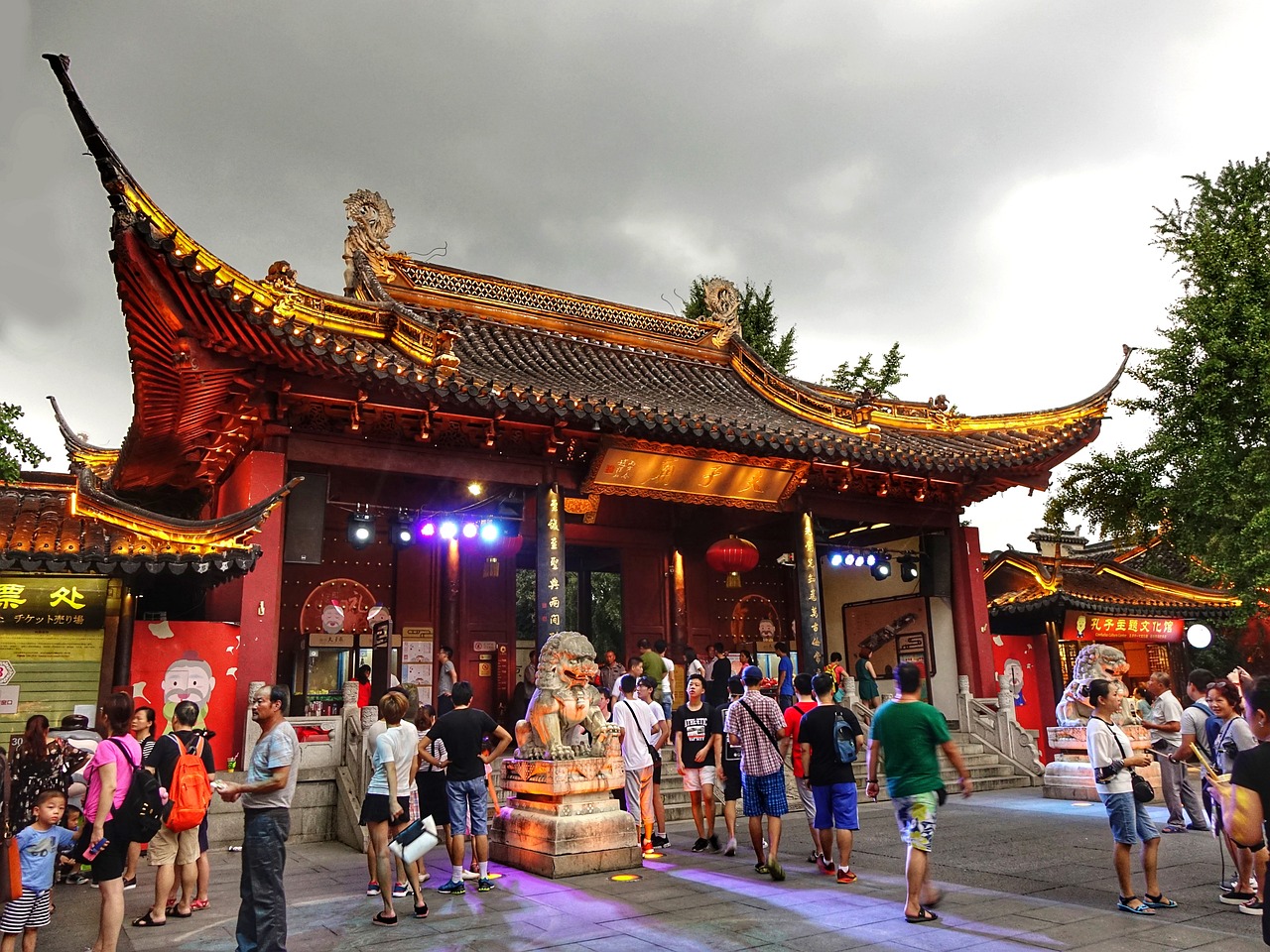
The Role of Education
Education, in the eyes of Confucius, was not merely a means to acquire knowledge; it was a transformative journey that shaped the very essence of an individual. He believed that through education, one could cultivate virtues, develop moral integrity, and ultimately contribute positively to society. Imagine education as a garden: it requires nurturing, patience, and care to grow. Just as a gardener tends to plants, Confucius emphasized the need for both teachers and students to engage actively in this process of growth.
Confucius posited that the pursuit of knowledge was a lifelong endeavor. He famously stated, “Is it not a joy to have friends come from afar? Is it not a joy to learn from others?” This illustrates his belief that learning is not confined to the classroom; it extends to interactions and experiences throughout life. Education, for him, was a communal activity, fostering connections and understanding among individuals. In this way, he encouraged a culture of continuous learning, where individuals constantly sought to improve themselves and their communities.
Moreover, Confucius highlighted the importance of moral education. He argued that knowledge without virtue could lead to chaos. A well-rounded education should encompass not only intellectual development but also ethical training. This dual focus ensures that individuals are prepared to make decisions that are not only informed but also morally sound. As he put it, “The man who moves a mountain begins by carrying away small stones.” This quote underscores the idea that even small, consistent efforts in moral education can lead to significant societal change.
In Confucian thought, the role of the teacher is paramount. Teachers are not just dispensers of knowledge; they are moral guides, mentors who shape the character of their students. Confucius believed that teachers should embody the values they wish to impart. This creates a ripple effect, as students emulate the virtues of their educators. In this context, education becomes a sacred responsibility, with teachers playing a crucial role in cultivating the next generation of leaders and citizens.
To further illustrate the impact of education in Confucianism, let’s consider the three essential elements that Confucius believed should be integrated into the educational framework:
- Moral Development: Education should prioritize the cultivation of virtues such as honesty, respect, and compassion.
- Civic Responsibility: Individuals should be educated to understand their roles and responsibilities within society, fostering a sense of duty and community.
- Critical Thinking: Encouraging students to think critically and question norms promotes a deeper understanding of the world and their place in it.
Through these principles, Confucius envisioned an educational system that not only prepares individuals for personal success but also equips them to contribute to the greater good. In essence, education serves as a foundation for a harmonious society, where individuals work together towards common goals, guided by shared values and mutual respect.
In conclusion, Confucius's perspective on education transcends the mere acquisition of knowledge. It is a holistic approach that integrates moral development, civic responsibility, and critical thinking. By nurturing these qualities, education becomes a powerful tool for personal transformation and societal progress, echoing Confucius's timeless wisdom in today's world.
- What is the primary focus of Confucian education?
Confucian education emphasizes moral development, civic responsibility, and critical thinking, aiming to cultivate virtuous individuals who contribute positively to society. - How did Confucius view the role of teachers?
Confucius viewed teachers as moral guides and mentors who should embody the values they impart, playing a crucial role in shaping the character of their students. - Is education in Confucianism limited to formal schooling?
No, Confucius believed that education extends beyond formal schooling and includes lifelong learning through experiences and interactions with others.
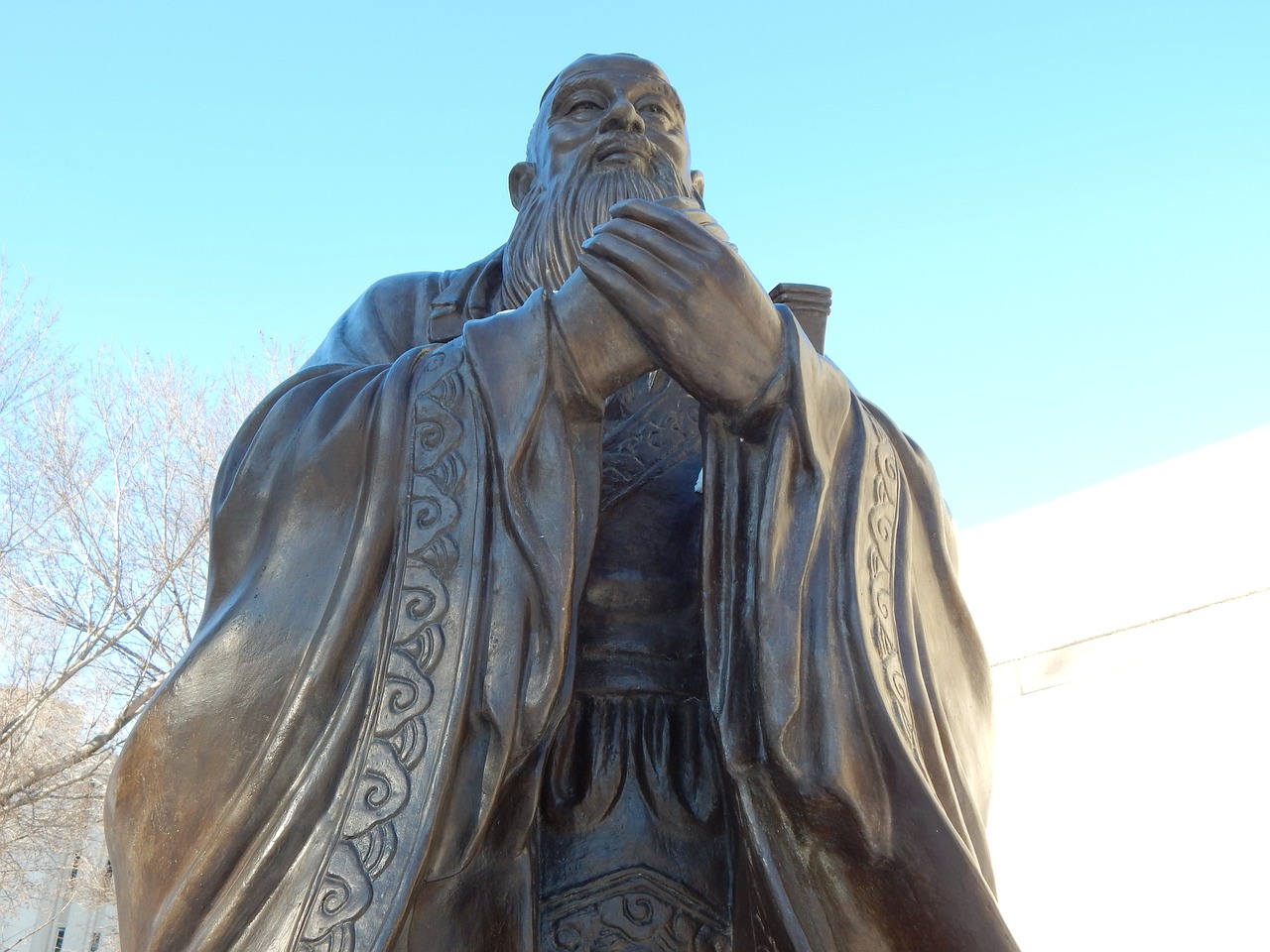
Confucianism and Governance
Confucius, the revered philosopher of ancient China, had profound insights into the realm of governance. He believed that the foundation of a successful government lies in the moral integrity of its leaders. In his view, rulers should not merely exercise power but should embody virtue and benevolence. This principle is encapsulated in the idea that "A ruler should be like a father to his people." Such a perspective emphasizes the importance of moral authority over sheer political power.
Confucian governance is often characterized by a focus on ethical leadership and the cultivation of virtue among those in power. For Confucius, the legitimacy of a ruler stems from their ability to promote the common good and ensure the welfare of their subjects. This is especially relevant in today's political landscape, where the call for ethical governance is more pronounced than ever. Leaders who prioritize integrity and compassion can foster a sense of trust and loyalty among the populace, creating a harmonious society.
Moreover, Confucius advocated for the idea of meritocracy in governance. He believed that positions of power should be filled based on merit and moral character rather than wealth or birthright. This principle is illustrated in the following table, which outlines the key attributes of Confucian governance:
| Attribute | Description |
|---|---|
| Moral Integrity | Leaders must possess strong ethical values and act as role models for their citizens. |
| Compassion | Rulers should care for the welfare of their people, akin to a parent's love for their children. |
| Meritocracy | Governance should be based on one's abilities and virtues, not social status. |
| Education | Continuous learning and moral development are crucial for effective leadership. |
Additionally, the concept of Ren (benevolence) plays a pivotal role in Confucian governance. Leaders are expected to practice Ren in their decision-making processes, ensuring that their policies promote the welfare of the populace. This not only cultivates a sense of community but also reinforces the social contract between the ruler and the ruled. When leaders act with benevolence, they inspire loyalty and respect, creating a stable and flourishing society.
Furthermore, Confucius emphasized the importance of rituals and traditions in governance. He believed that rituals foster respect and order within society, helping to maintain harmony among individuals. In this light, governance is not just about laws and regulations; it is also about nurturing a culture of respect and ethical behavior. By adhering to rituals, leaders can reinforce societal values and promote a sense of belonging among citizens.
In conclusion, Confucianism offers a timeless framework for governance that prioritizes ethical leadership, meritocracy, and the well-being of the community. As we navigate the complexities of contemporary governance, the teachings of Confucius remind us that true leadership is not merely about authority but about embodying the virtues that inspire others to follow. In a world yearning for integrity and compassion in leadership, Confucian principles remain remarkably relevant.
- What is the main idea of Confucianism in governance? Confucianism emphasizes the importance of moral integrity, benevolence, and meritocracy in leadership.
- How does Confucianism view the role of a leader? A leader is seen as a moral exemplar who should care for the welfare of their people, akin to a father’s love for his children.
- Why is education significant in Confucian governance? Education is crucial for moral development and helps cultivate virtuous leaders who can effectively guide society.
- What role do rituals play in Confucian governance? Rituals help maintain social order and respect, reinforcing ethical behavior and community values.
Frequently Asked Questions
- Who was Confucius?
Confucius was a Chinese philosopher and educator who lived from 551 to 479 BCE. His teachings focused on morality, ethics, and social relationships, profoundly influencing Eastern philosophy and culture.
- What are the core teachings of Confucianism?
The core teachings of Confucianism include principles such as Ren (benevolence), Li (ritual propriety), and Xiao (filial piety). These principles emphasize the importance of compassion, respect, and familial loyalty in personal and societal ethics.
- What does Ren mean in Confucianism?
Ren, often translated as benevolence or humaneness, is a central concept in Confucianism. It signifies the quality of compassion and moral integrity that individuals should cultivate to foster harmonious relationships within their communities.
- How can I apply Ren in my daily life?
Applying Ren in daily life can be as simple as showing kindness to others, practicing empathy, and engaging in acts of service. By fostering a genuine concern for the well-being of others, we can contribute to a more compassionate society.
- What is the significance of Li in Confucian thought?
Li refers to ritual propriety and social norms that guide behavior and maintain order within society. It emphasizes respect for traditions and the importance of rituals in fostering social harmony and mutual respect among individuals.
- What role does education play in Confucianism?
Education is seen as a transformative tool in Confucianism. Confucius believed that through education, individuals could cultivate virtue, develop moral character, and contribute positively to society, highlighting the importance of lifelong learning.
- How does Confucianism view leadership?
Confucianism advocates for virtuous leadership, emphasizing that leaders should embody moral authority and benevolence. A good leader is expected to govern with integrity and care for the welfare of the people.
- Is Confucianism still relevant today?
Absolutely! Confucian teachings continue to resonate in modern society, particularly in areas such as ethics, governance, and interpersonal relationships. Many people find value in its principles for fostering harmony and moral integrity in their lives.

